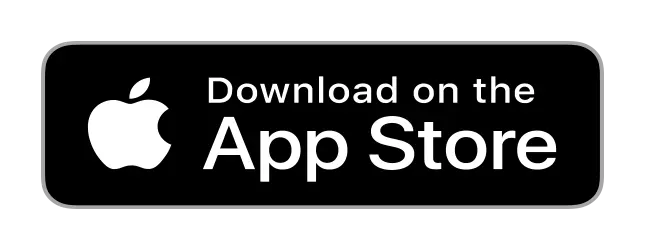Why Expense Tracking Is Critical for Freelance Success
As a freelance professional, every dollar you spend on business expenses represents potential tax savings and improved cash flow management. Yet many freelancers struggle with inconsistent tracking methods, leading to missed deductions worth thousands of dollars annually. Proper expense tracking isn't just about tax compliance it's about understanding your true profitability and making informed business decisions.
The difference between successful freelancers and those who struggle often comes down to financial discipline. When you track expenses meticulously, you gain visibility into spending patterns, identify cost-cutting opportunities, and ensure you're claiming every legitimate deduction. This systematic approach transforms expense management from a dreaded chore into a powerful business tool.
Essential Categories Every Freelancer Should Track
Understanding which expenses to track is the foundation of effective financial management. The IRS guidelines for business expenses provide clear direction, but freelancers need to adapt these categories to their specific situations.
Office and Equipment Expenses
Your workspace and tools are fundamental business investments. Track purchases of computers, software subscriptions, office furniture, and supplies. Don't overlook smaller items like cables, external drives, or ergonomic accessories these add up significantly over time. If you work from home, calculate the percentage of your living space used exclusively for business to claim home office deductions.
Professional Development and Education
Staying competitive requires continuous learning. Track expenses for online courses, industry conferences, professional certifications, books, and workshops. These investments in your skills are fully deductible and often provide the highest return on investment for freelancers looking to increase their rates.
Marketing and Business Development
Building your freelance business requires marketing investments. Track website hosting, domain registration, business cards, portfolio development, advertising costs, and networking event fees. Social media management tools, email marketing platforms, and professional photography for your brand all qualify as legitimate business expenses.
Transportation and Travel
Client meetings, co-working spaces, and business travel generate deductible expenses. Track mileage for business trips, parking fees, public transportation costs, and travel expenses for client work or professional development. Maintain detailed records showing the business purpose of each trip.
Digital Tools and Systems for Seamless Tracking
Modern expense tracking relies on digital solutions that automate data collection and organization. The key is choosing tools that integrate with your existing workflow rather than creating additional administrative burden.
Mobile Receipt Capture
Smartphone apps with receipt scanning capabilities eliminate the paper trail while ensuring immediate capture of expense data. Look for apps that use optical character recognition to extract key information automatically, reducing manual data entry. The best solutions sync across devices and integrate with accounting software.
Bank Account Integration
Connecting your business bank accounts and credit cards to expense tracking software creates automatic transaction imports. This integration catches expenses you might otherwise forget while providing a complete financial picture. Review and categorize transactions regularly to maintain accuracy.
Mileage Tracking Automation
GPS-based mileage tracking apps automatically log business trips, calculate deductions, and maintain IRS-compliant records. These tools eliminate the guesswork from mileage logs while ensuring you don't miss valuable deductions from forgotten trips.
Establishing Bulletproof Record-Keeping Habits
Consistency in record-keeping separates professional freelancers from amateur operations. Develop systems that work with your natural workflow rather than against it.
The Weekly Review Process
Schedule a weekly 30-minute session to review and categorize expenses. This regular maintenance prevents the overwhelming backlog that leads many freelancers to abandon tracking altogether. Use this time to scan receipts, categorize transactions, and reconcile accounts.
During your weekly review, look for patterns in your spending. Are you consistently overspending in certain categories? Are there subscriptions you're not using? This analysis helps optimize your business expenses over time.
Documentation Standards
Maintain consistent documentation for all expenses. Each record should include the date, amount, vendor, business purpose, and supporting documentation. For meals and entertainment, note the business relationship and topics discussed. This level of detail protects you during audits and ensures maximum deductibility.
Backup and Security
Protect your financial records with automated backups and secure storage. Cloud-based solutions provide accessibility while maintaining security. Consider the NIST cybersecurity framework when evaluating storage options for sensitive financial data.
Maximizing Tax Deductions Through Strategic Tracking
Effective expense tracking goes beyond simple record-keeping it's about strategic tax planning that maximizes your deductions within legal boundaries.
Understanding Deduction Limits
Different expense categories have varying deduction rules and limits. Meal expenses are typically 50% deductible, while office supplies are fully deductible. Equipment purchases may require depreciation over several years, while software subscriptions are immediately deductible. Understanding these nuances helps you make informed purchasing decisions.
Timing Purchases Strategically
The timing of business purchases affects your tax liability. If you're having a particularly profitable year, accelerating equipment purchases or professional development expenses can reduce your tax burden. Conversely, if income is lower, you might delay discretionary purchases to preserve cash flow.
Separating Personal and Business Expenses
Maintain clear separation between personal and business expenses to avoid audit complications. Use dedicated business credit cards and bank accounts. When expenses serve both personal and business purposes, track only the business portion. For example, if you use your phone 70% for business, deduct 70% of the monthly bill.
Common Expense Tracking Mistakes to Avoid
Learning from common pitfalls helps establish robust tracking systems from the start.
Mixing Personal and Business Expenses
Using personal accounts for business expenses creates confusion and compliance risks. Even if you track these expenses separately, the commingled funds complicate record-keeping and may trigger audit scrutiny. Establish dedicated business accounts from day one of your freelance career.
Inadequate Documentation
Saving receipts without context creates problems during tax preparation or audits. Each expense needs sufficient documentation to prove its business purpose and legitimacy. A receipt for a $200 dinner means nothing without notes about the client meeting and business discussion.
Inconsistent Categorization
Changing how you categorize similar expenses creates confusion and makes financial analysis difficult. Establish clear categorization rules early and stick to them consistently. Document your categorization decisions to ensure consistency over time.
Quarterly Financial Reviews and Analysis
Regular financial analysis transforms expense data into actionable business intelligence.
Profitability Analysis
Compare your expenses to revenue by client, project type, or service category. This analysis reveals which aspects of your business are most profitable and where you might be overspending. Use these insights to adjust pricing, eliminate unprofitable services, or negotiate better rates with vendors.
Budget Planning and Forecasting
Historical expense data enables accurate budget planning for future quarters. Identify seasonal patterns, plan for major equipment purchases, and set aside funds for professional development. This proactive approach prevents cash flow surprises and enables strategic business investments.
Tax Preparation Readiness
Quarterly reviews ensure you're prepared for tax season year-round. Calculate estimated tax payments based on current profitability, identify additional deduction opportunities, and address any record-keeping gaps before they become problems.
Advanced Strategies for Expense Optimization
Once you've mastered basic expense tracking, advanced strategies can further optimize your financial management.
Vendor Relationship Management
Track vendor performance alongside expenses to identify the best value providers. Consider factors like reliability, quality, and customer service not just price. Building strong vendor relationships often leads to better terms and priority service.
Expense Benchmarking
Compare your expense ratios to industry benchmarks to identify optimization opportunities. If you're spending significantly more than peers on certain categories, investigate whether you're overpaying or if the additional investment provides competitive advantages.
Automated Expense Policies
Establish personal expense policies that guide spending decisions. For example, you might set limits on meal expenses, require approval for purchases over certain amounts, or mandate competitive bidding for major investments. These policies prevent impulse purchases and ensure consistent decision-making.
Technology Integration and Workflow Optimization
The most effective expense tracking systems integrate seamlessly with your existing business workflows.
Accounting Software Integration
Choose expense tracking tools that integrate with your accounting software to eliminate duplicate data entry. This integration ensures consistency between expense records and financial statements while reducing administrative overhead.
Client Billing Integration
For reimbursable expenses, integrate tracking with your invoicing system. This connection ensures you bill clients for all eligible expenses while maintaining proper documentation for both tax and client purposes.
Project-Based Tracking
Track expenses by project or client to understand true project profitability. This granular tracking reveals which types of work are most profitable and helps you make informed decisions about future projects and pricing strategies.
Building Long-Term Financial Success
Effective expense tracking is just one component of comprehensive financial management for freelancers. The habits and systems you develop create a foundation for long-term business success.
As your freelance business grows, your expense tracking needs will evolve. What works for a solo freelancer may not scale to a small agency. Plan for growth by choosing flexible systems and maintaining detailed records that support business expansion.
The discipline required for meticulous expense tracking develops broader business management skills. Freelancers who master financial record-keeping often excel at project management, client communication, and strategic planning. These interconnected skills create competitive advantages that extend far beyond tax savings.
Remember that expense tracking is an investment in your business's future. The time you spend organizing financial records pays dividends through tax savings, improved decision-making, and reduced stress during tax season. Make expense tracking a non-negotiable part of your professional routine, and watch as this discipline transforms your freelance business from a side hustle into a thriving enterprise.
Start implementing these best practices today, beginning with the basics and gradually incorporating more sophisticated strategies as your systems mature. Your future self and your accountant will thank you for the effort invested in proper expense tracking from the beginning of your freelance journey.

